Survey finds Singapore teachers work 47.3 hours weekly, six hours above OECD average
Singapore teachers are working longer hours than their global peers despite teaching fewer classroom hours, according to the latest OECD Teaching and Learning International Survey. While many remain satisfied with their jobs, rising stress and workload concerns persist.
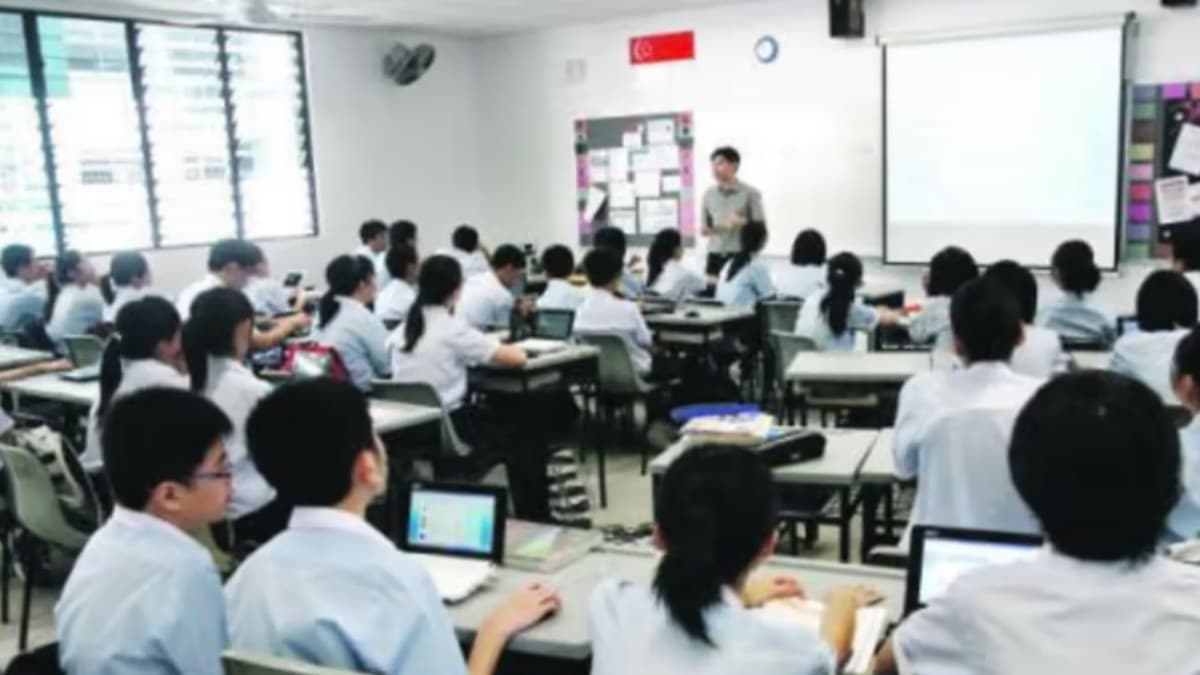
- Singapore teachers work an average of 47.3 hours weekly, above the OECD average of 41 hours, mainly due to non-teaching duties.
- Teachers report higher stress levels, with 27% feeling stressed “a lot”, compared to the OECD’s 19%.
- Despite long hours, job satisfaction remains high, and over 70% believe teachers are valued in society.
Teachers in Singapore work significantly longer hours than the global average, according to the Organisation for Economic Cooperation and Development (OECD) Teaching and Learning International Survey (Talis) released on 7 October 2025.
The survey found that Singapore teachers average 47.3 working hours per week, compared with the OECD average of 41. This places Singapore third globally, behind Japan at 55 hours and New Zealand in second place.
Although teachers here spend fewer hours on classroom teaching — 17.7 hours weekly, compared with the OECD average of 22.7 — their overall workload is heavier due to additional responsibilities such as lesson planning, counselling, co-curricular activities and communication with parents.
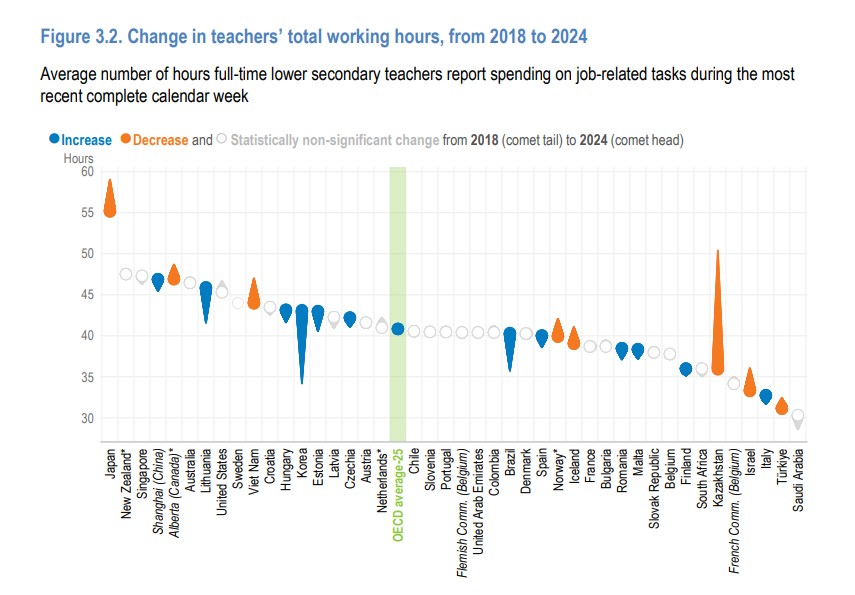
The Ministry of Education (MOE) of SIngapore said that the figures reflect Singapore’s holistic education model, where teachers play multiple roles in students’ academic and personal development.
“Teachers do not just teach academic content, but also nurture students’ non-academic growth through co-curricular and pastoral activities,” the ministry stated.
Teachers spent about 6.4 hours weekly on marking, down from 7.5 hours in 2018, and 8.2 hours preparing lessons. Administrative work accounted for four hours, slightly higher than in 2018.
The OECD study, which polled 194,000 teachers across 55 education systems, included responses from about 3,500 Singapore teachers and principals from all 145 secondary schools and 10 private institutions.
Despite the long hours, over 80% of teachers in Singapore reported being satisfied with their jobs.
However, stress levels have risen — 27% said they experience stress “a lot” at work, up from 23% in 2018, and higher than the OECD average of 19%.
Key stress factors include administrative duties, marking, and accountability for student performance.
Education Minister Desmond Lee, speaking at the launch of the Talis 2024 report at the MOE headquarters in Buona Vista, said the ministry is taking steps to ease administrative pressures through digital solutions.
He highlighted Parents Gateway, a digital platform that enables electronic submission of absence documents, which will be available to all parents by early 2026.
The initiative aims to reduce teachers’ workload related to attendance tracking and communication.
Lee also emphasised the need to set boundaries to avoid an “always-on” culture between teachers and parents.
“We are committed to ensuring that teaching remains attractive and rewarding for both new and experienced educators,” he said.
The survey revealed generational differences in stress levels, with younger teachers under 30 reporting higher stress compared to those aged 50 and above.
While 40% of younger teachers indicated plans to leave the profession within five years — down nine percentage points from 2018 — the figure remains double the OECD average. Most cited personal or family reasons, pursuing further education, or shifting to non-teaching roles within education.
On remuneration, 55% of Singapore teachers expressed satisfaction with their salaries, though this represents a 17-point decline from 2018. The figure still surpasses the OECD average of 39%.
In terms of social perception, 71% of teachers in Singapore believe that their profession is valued in society, far above the global average of 22%. Over half also felt their views are respected by policymakers, up seven percentage points from the previous survey.
More than seven in ten teachers said teaching was their first career choice, including 79% of novice educators with under five years of experience.
The OECD said the Talis survey aims to inform governments on policies to improve teacher well-being, training, and professional development. Singapore’s participation, now in its third cycle, provides a consistent measure of progress and challenges facing educators in a rapidly evolving education landscape.
MOE reiterated that it will continue to strengthen support systems, promote work-life balance, and enhance career growth opportunities for teachers.
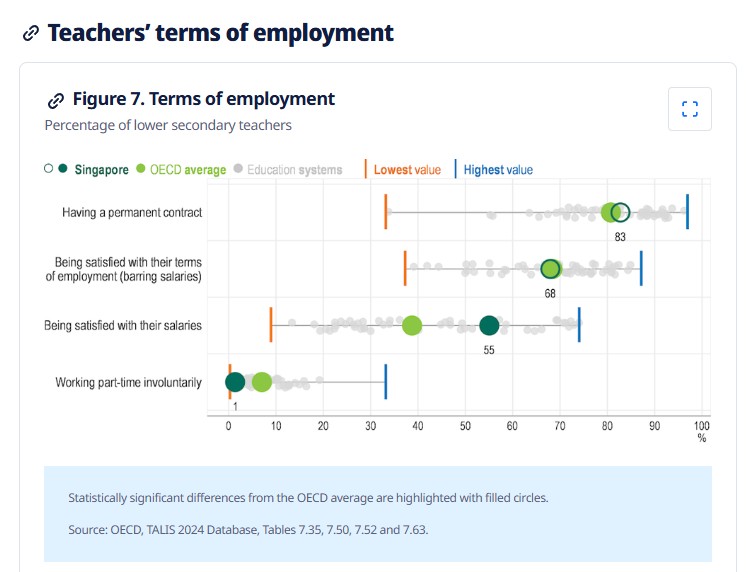


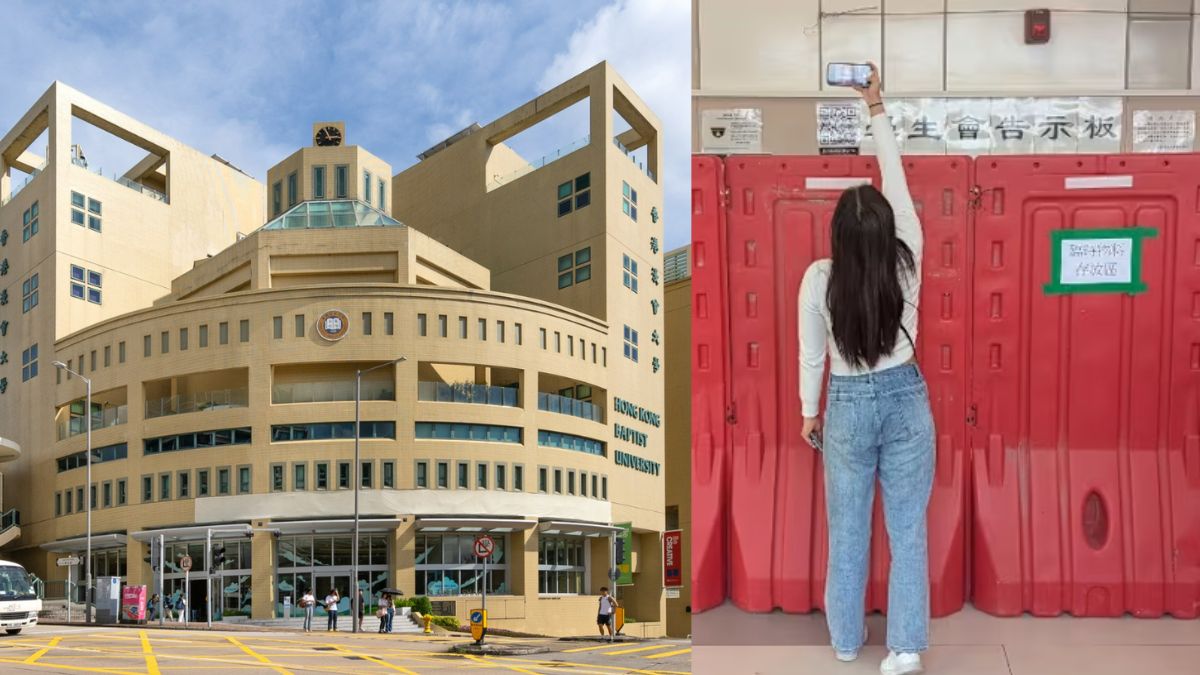


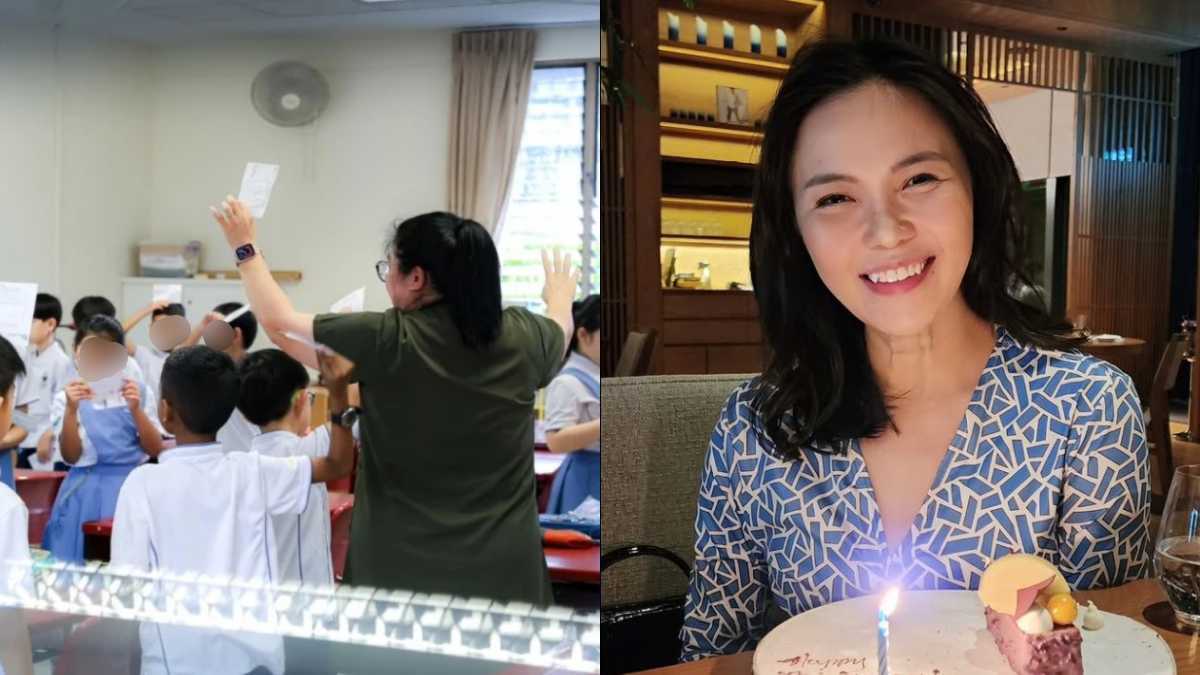
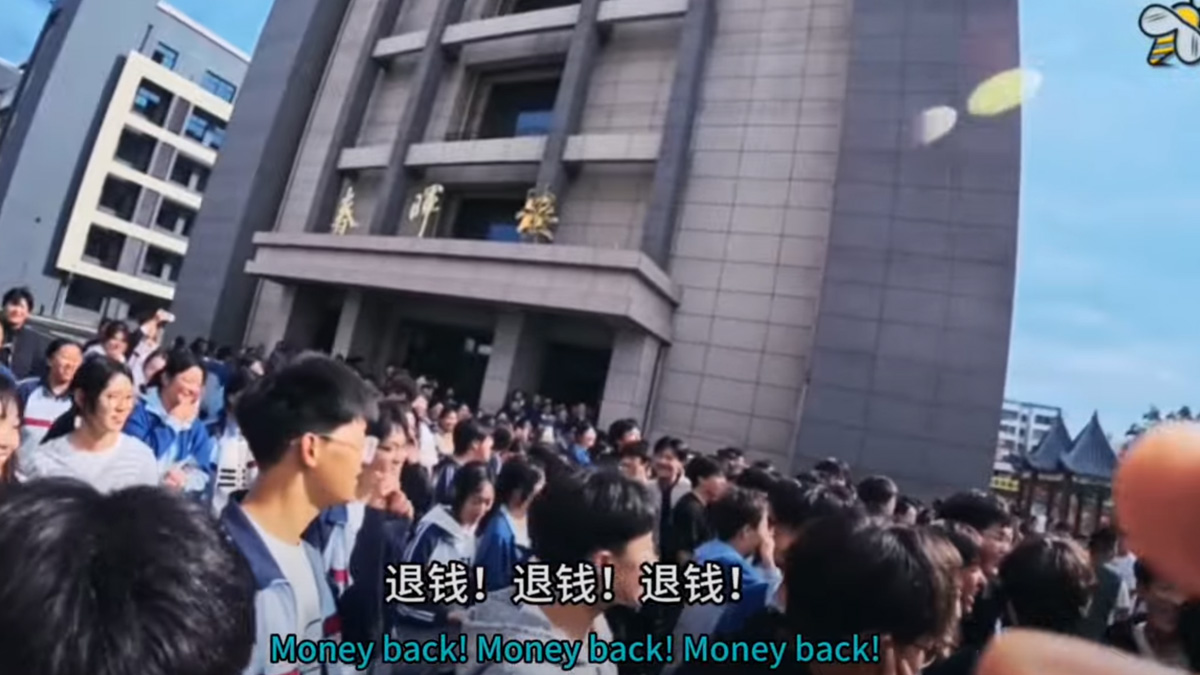
0 Comments